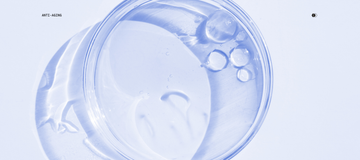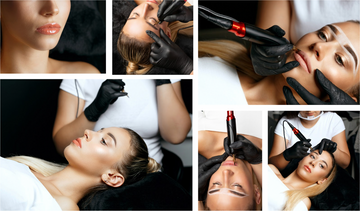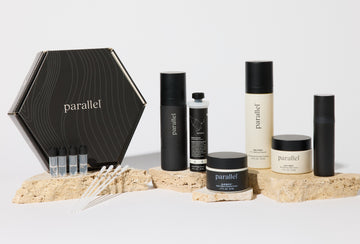Alarming new research has uncovered a disturbing trend that could put your health at serious risk. Over one-third of 75 tattoo and permanent makeup inks from well-known brands were found to be contaminated with bacteria—yikes! And yes, even inks that claim to be sterile. These inks were sealed and unopened, meaning contamination happens before they even touch your skin.
In this recent study, inks were found to contain both aerobic and anaerobic bacteria. While some inks showed relatively low contamination levels, others contained bacterial counts as high as 105 CFUs (colony-forming units) per gram—numbers that should make anyone pause.
The Hidden Dangers in Tattoo Ink
Researchers identified 34 different types of bacteria in the ink samples, some of which are known to cause serious and life-threatening infections.
- Staphylococcus saprophyticus: A common cause of urinary tract infections
- Staphylococcus epidermidis: Known for causing healthcare-acquired infections.
- Cutibacterium acnes: Causes acne and infections linked to medical devices.
- Pseudomonas putida: Especially dangerous for those with weakened immune systems, this bacterium can cause pneumonia, skin infections, and soft tissue infections.
- Stenotrophomonas maltophilia: A drug-resistant bacteria that can lead to respiratory infections, meningitis, endocarditis, and systemic infections.
Is Contaminated Tattoo Ink Dangerous?
Absolutely. The FDA has been receiving more reports of infections and allergic reactions related to tattoo ink, with symptoms ranging from mild redness and rashes to severe conditions like fever, chills, and even sepsis—a potentially life-threatening response to infection. In serious cases, these infections may spread through the bloodstream, potentially leading to conditions like septic shock or endocarditis.
Tattoo ink infections most commonly involve bacterial skin infections, such as staphylococcus infections, cellulitis (a deep infection of the skin), and impetigo (a contagious bacterial skin infection). In some cases, these infections require antibiotics, and more severe cases may need surgical intervention.
People with larger tattoos are at higher risk since they are exposed to greater amounts of ink. Permanent makeup, especially around sensitive areas like the eyes, presents additional risks as infections in these areas can be more challenging to treat and potentially more damaging.
What You Can Do to Protect Yourself
1) Choose your tattoo studio carefully
2) Make sure your artist follows strict hygiene standards and don’t hesitate to ask about how the inks are handled or if steps like autoclaving are taken to sterilize them
3) After getting inked, be vigilant for signs of infection such as persistent redness, swelling, fever, or chills, and seek medical attention immediately if these symptoms arise
4) Be vigilant with aftercare and follow all instructions provided
Contaminated ink can cause infections that escalate quickly, so don’t assume it’s safe just because the ink is labeled sterile. Contamination can happen long before the ink ever reaches your skin, and many artists might not even be aware of the risk.
Your skin is your body’s first line of defense, and it's essential to keep it safe from harmful bacteria—whether from contaminated ink or other sources. If you're concerned about what might be hiding beneath the surface of your skin, consider using our Skin Discovery Test (which is included twice a year when you sign up for the MD-03 Phage Protocol™). This non-invasive test can give you a snapshot of the bacteria living on your skin, helping you make informed decisions about your skincare routine and overall health.





























